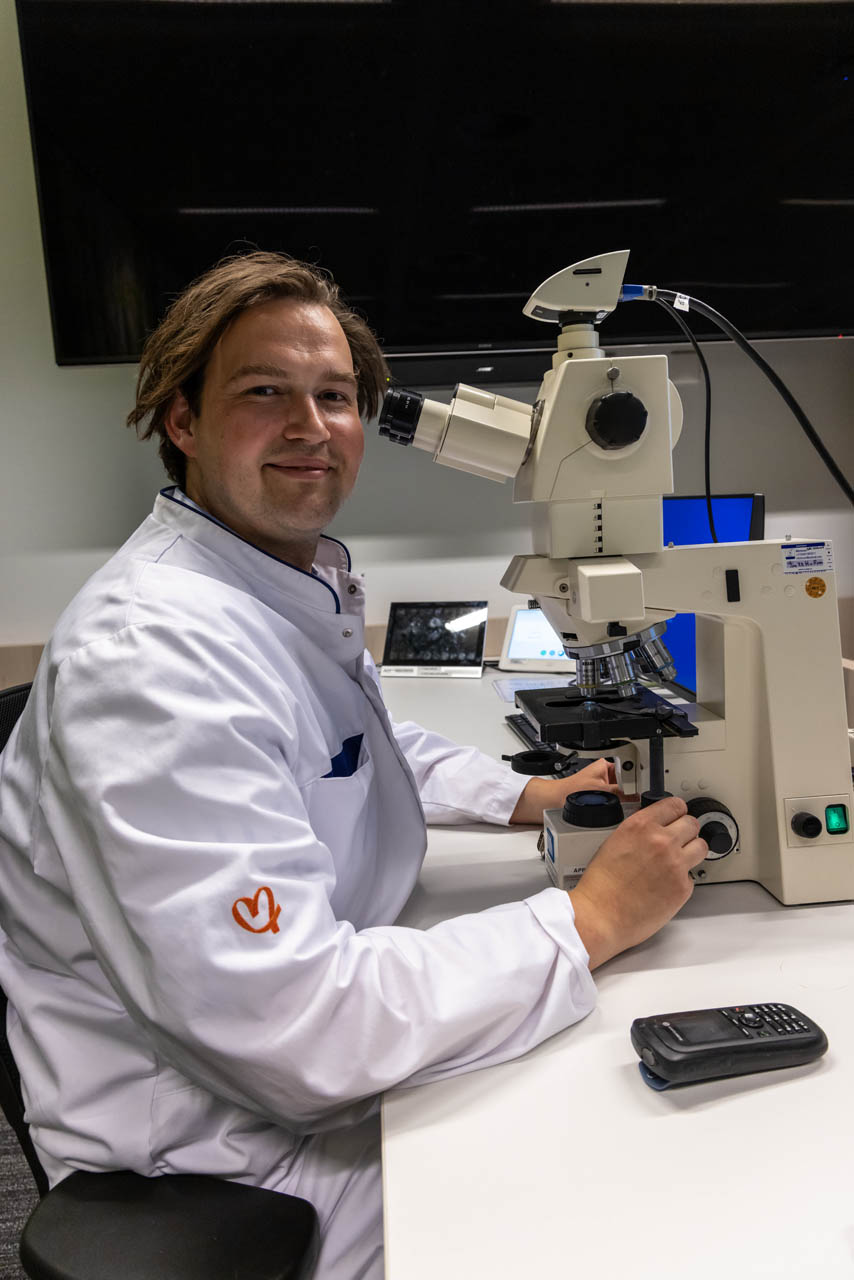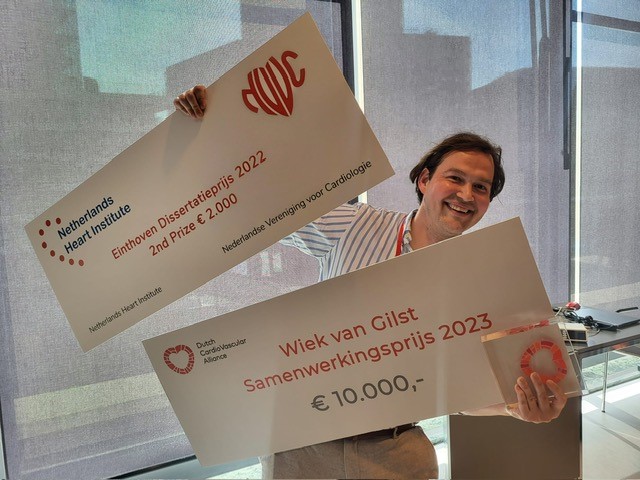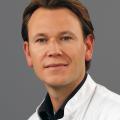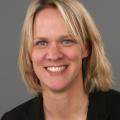Safe research unravels heart diseases
With the Maastricht CardioMyoPathy Register, researchers are exploring new possibilities for the detection and treatment of heart diseases. Using an innovative database, they ensure the security of participants' data. Therefore, all participants can confidently take part in this large-scale study.
For years, cardiologists have been specializing in increasingly smaller aspects of their field, such as heart attacks, arrhythmias, or heart failure. To avoid losing sight of the big picture amidst all these heart diseases, it's useful to occasionally zoom out and take a broader view. That's precisely the goal of the Maastricht CardioMyoPathy Register (mCMP, cardiomyopathy being a medical term for heart diseases). This register maps the experiences of people with heart diseases, with the hope of gaining new insights into the development and treatment of these conditions. But how do the scientists ensure the safety of all patient data? Dr. Michiel Henkens, a researcher at the Cardiology Department and a trainee pathologist at MUMC+, as well as one of the initiators of the mCMP register, explains.
Digital vault
"We work with two physically separate databases. The first one contains all encrypted research data but does not include any information that can link this data to an individual, such as name, date of birth, or gender. The data does include a unique code for each person. The second database is a digital vault that holds the key to all the codes. Only the local researchers in Maastricht have access to the vault and can, with the participants' consent, contact them, for example, to request completion of the annual questionnaire or participation in other studies. Each participant decides in advance whether they allow researchers to contact them. Even those who choose not to be contacted can still participate in the study."
"With explicit consent from the participants, anonymous data can be shared with researchers from other centers to conduct joint research on heart diseases," Henkens continues. "Only the encrypted data is shared, and not personally identifiable information. The database with participant data complies with the strictest rules to ensure everyone's anonymity."
The researchers are "filling" the database in a new and innovative way. "Together with our partners, we managed to automate the data collection," says Henkens. "This is a significant advancement because previously, researchers had to manually enter all the data, which was a lot of work and could lead to typographical errors." This automation is highly welcomed, especially since the researchers aim to recruit ten thousand participants for the mCMP register to improve the detection and, hopefully, better treat myocardial diseases in the future. They are well on their way with over 2500 participants already.

Michiel Henkens obtained his Bachelor's degree in Health Sciences and his Bachelor's degree in Medicine (with honors) from Maastricht University in 2014. In 2019, he completed his Master's degree in Medicine (with honors) and began his doctoral research at the Cardiology Department of MUMC+ (Maastricht University Medical Center+). In October 2022, he successfully completed this trajectory. During his doctoral research, he became the coordinator of the NLHI-Heart Bank, a central biobank that stores heart tissue from deceased donors for scientific research. In July 2022, Michiel began his training as a pathologist at MUMC+. During his specialization, he will continue his role as coordinator of the NLHI-Heart Bank and will also conduct research as a postdoctoral researcher at the Cardiology Department of MUMC+ and the CARIM research institute.
A healthy heart and still participate?
"We want to compare sick individuals with their healthy peers to identify other differences besides the heart disease. This will provide valuable information to better understand the development of heart diseases, among other things.
Anyone visiting the cardiology outpatient clinic at MUMC+ with a heart disease or for screening for heart diseases can participate in the mCMP register. This includes individuals who, after examination by the cardiologist, are found not to have heart diseases. Henkens explains why: "We want to compare sick individuals with their healthy peers to identify other differences besides the heart disease. This will provide valuable information to better understand the development of heart diseases, among other things. There is another reason: although the cardiologist currently does not find any heart diseases, they can unfortunately still develop in the future. By following this group of individuals, we can gain more insight into how we can detect (future) heart diseases faster and more effectively."
The Maastricht register is popular, and other hospitals also want to participate in this secure and efficient method of data collection to better understand heart diseases. Thanks to the strictest security measures, such as separate databases, a digital vault, and automated data collection, participants do not need to worry about their data falling into the wrong hands. Voluntarily participating in the research remains safe.
We willen zieke mensen vergelijken met hun gezonde leeftijdgenoten om te zien waarin ze, behalve de hartziekte, nog meer verschillen. Dit zal waardevolle informatie opleveren om zo onder andere het ontstaan van hartziekten nog beter te begrijpen
Awardwinning!
During a gathering of researchers in the field of cardiovascular diseases on June 23, 2023, Henkens received two awards for his research: the second prize of the Einthoven Dissertation Award 2022 and, on behalf of the NLHI-Heart Bank (www.hartenbank.nl), the Wiek van Gilst Collaboration Award 2023. These awards are proof that his research and his approach to conducting research are appreciated by the scientific community.

Colleagues of Michiel Henkens on data and research

Professor of Cardiology, Kevin Vernooij
Prof. Dr. Kevin Vernooy, a professor of cardiology at MUMC+, discusses how researchers keep the data organized and secure, even with the participation of numerous individuals and other hospitals: "We aim to collect data from a large and diverse group of patients, which is why collaboration with other hospitals is so important. Each hospital collects the same data in the same way, ensuring the data collection remains organized. Additionally, a physician can only access information from patients within their own hospital, which enhances data security."

Cardiologist Vanessa van Empel
Dr. Vanessa van Empel, a cardiologist at MUMC+, has experience in sharing patient research data: "By being able to share data, we can extract much more information, which is essential for good and innovative research. However, we always share data anonymously, without any personal identifiers, only using codes. Everyone is aware of privacy legislation and handles the anonymous data with great care."

Clinical Geneticist Resident, Job Verdonschot
Dr. Job Verdonschot, a clinical geneticist resident, explains why a large number of people need to participate in the mCMP register: "The strength of this type of research lies in large numbers. The more people participate in the mCMP register, the greater the chance of discovering small details within the bigger picture that contribute to heart diseases. By identifying these factors, we can hopefully develop treatments for them as well."

Researcher Isabell Wiethoff
Isabell Wiethoff, a researcher at the CAPHRI research institute of Maastricht UMC+, addresses the question of whether Open Data Science provides open access to (personal) data for everyone: "No, Open Data Science refers to the open and transparent publication of results. We aim to make the results of research with the mCMP register freely accessible for other researchers and interested parties. Of course, this only pertains to the results and not personal data itself."
This article was previously published by Maastricht UMC+.